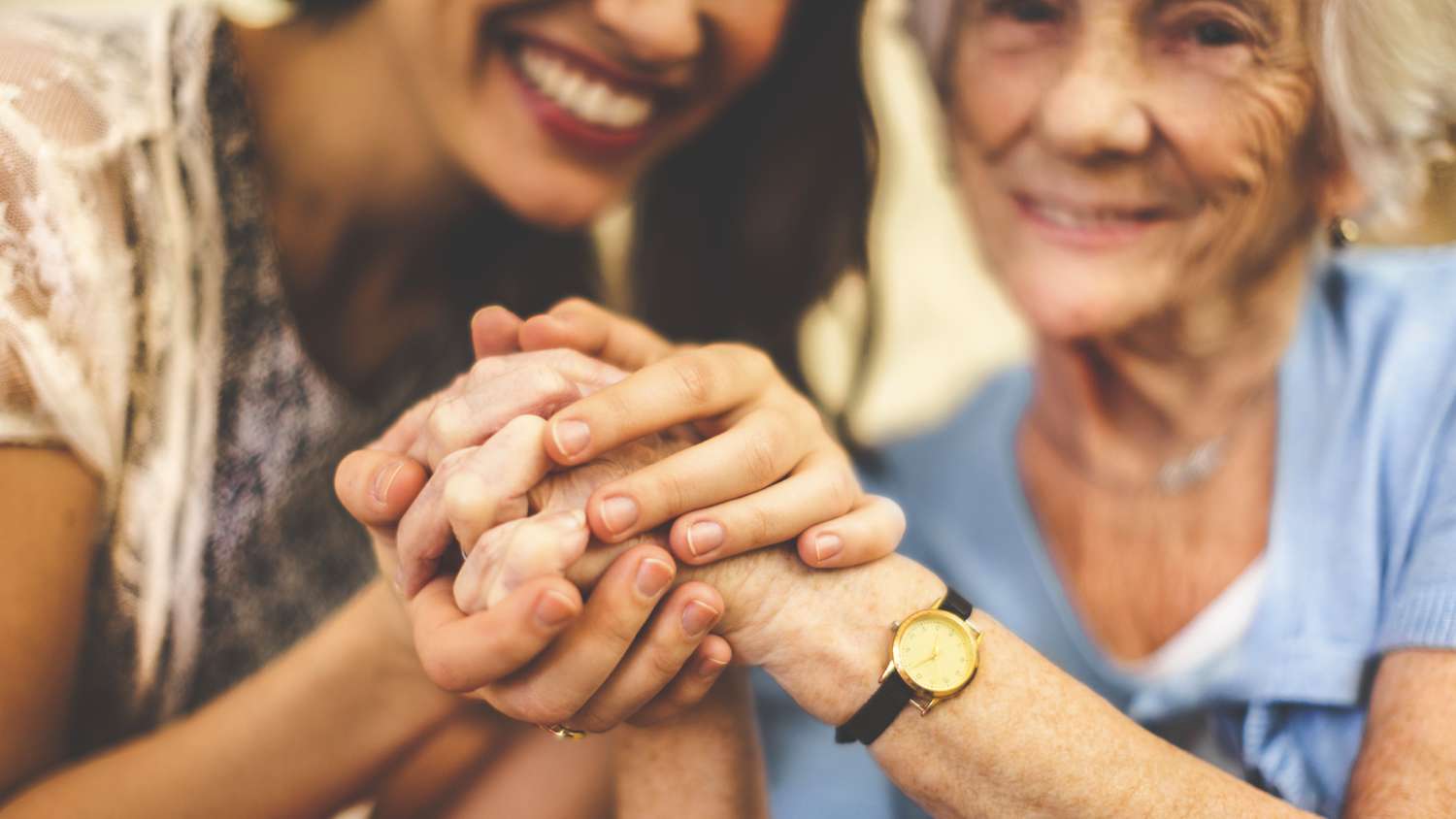
What to Say to Someone Who is Dying – a New Perspective from the Founder of Death Café (Video)
We all know that it is incredibly difficult to know what to say to someone who is dying. At the same time, as women over 60, we also know that there is no way to avoid these conversations. After all, when a friend, partner or family member is faced with a terminal diagnosis, they need our support. We just have to hope that our words do more good than harm.
Many years ago, I had the honor of working closely with Elizabeth Kubler Ross, who helped doctors and nurses to become more comfortable talking with their dying patients. It was a humbling and powerful experience to help her with her “Life, Death and Transition” workshops. I am not exaggerating when I say that her work changed the way that society looks at the process of dying – especially in the medical profession.
Unfortunately, despite the work of people like Elizabeth, there is still a taboo around the topic of death. Because we never take the time to face our own mortality, many of us “freeze” when we are faced with someone who has received a life-threatening diagnosis.
Today, I interviewed a fascinating gentleman who wants to address this problem. His name is Jon Underwood and he is the founder of Death Café, a program that helps people to talk about death in an open and honest way.
As the founder of Death Café, Jon has heard more than his share of personal stories – some inspiring and others tragic. As a result, he is in a unique position to give some advice on how to talk to someone who is dying. I hope that you find our conversation useful.
When a Friend is Dying, the Greatest Gift is Simply to Be Present
When I asked Jon how we should talk with someone who is dying, his advice was simple. He said that the number one thing is just to be with them. This means being fully present and not entering the conversation with preconceptions or your own agenda. When a dying person sees that you care enough to listen, they will open up in their own way. Everyone deals with death in their own way, so, this approach is the only way to avoid clichés that often hurt more than they heal.
Follow your friend’s lead. Do they need you to help them take care of any unfinished business? Do they want to talk about their fears about death? Are they looking for a friend to have fun with and take their mind off of the difficult situation that they are in? Or, do they perhaps want to be treated as normal, with no allowances being made for the fact that they are dying? At the end of the day, it’s up to them. That’s why listening is so important.
A Few Words of Wisdom for Medical Professionals
Since doctors and nurses deal with the dying every week, you would expect that they know exactly what to do and say to make a patient feel at east. Unfortunately, this is not always the case. Of course, medical professionals are doing a truly difficult job and they deserve our respect. At the same time, the mental state of the patient should always be considered.
Based on my experience with Elizabeth and Jon’s work with the Death Café organization, we agree that more medical professionals need to be trained on how to manage the transition from helping us stay alive to letting us die with dignity. By this, I mean that they should balance our need for closure and quality of life with other medical considerations. Many doctors are quite good at this… but, not all.
Don’t Forget to Take Care of Yourself
When someone they know gets sick, most people have one of two instincts. Either they run away or they drop everything and try to help. Jon reminds people who fall into this second category to take care of themselves first. It is natural to want to be by someone’s side during their difficult time. That said, you shouldn’t sacrifice your own mental or physical health.
If you are helping a loved one, Jon says that Death Cafes can help you to deal with your own feelings in a non-judgmental environment. Ironically, when you face your own fears about death, you will be in a better position to help. I couldn’t agree more.
Have you ever had to care for someone who was dying? What did the experience teach you? What advice do you have for the other women in our community about how to talk to someone who is dying?






